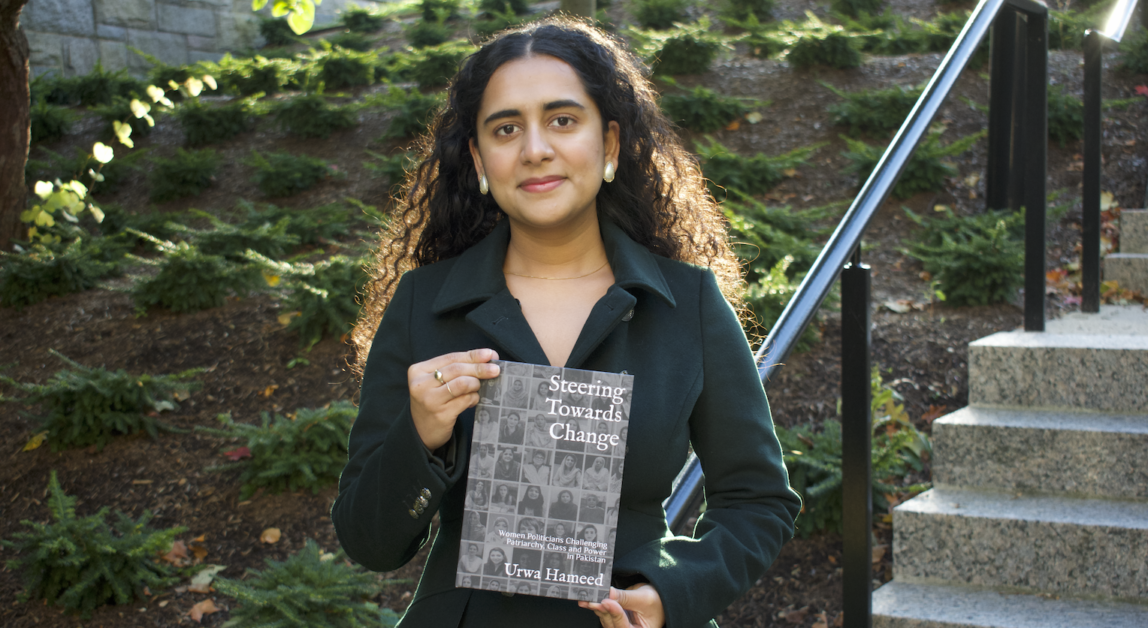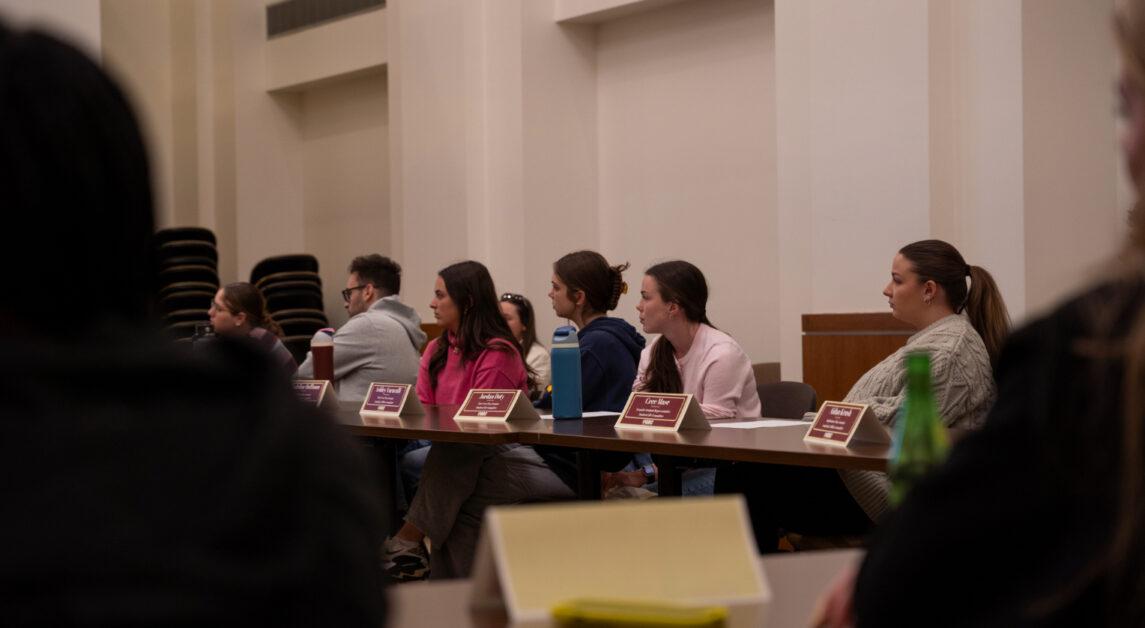“It’s really, really hard for women to be able to run for elections because not only do you have to cater to the women to get votes, you also have to cater to the men,” Hameed said. “If you can’t really do that, if you can’t really engage with such an audience who isn’t willing to see you like that, how are you to get their votes and how are you going to be elected as a woman in such a society?”
Hameed’s book, released on Oct. 1, includes interviews from 45 different female politicians in Pakistan. The book explores the politicians’ origin stories in hopes that it may inspire young girls, she said.
“Women breaking like, you know, the glass ceiling—if you want to use the metaphor—or women really, really, coming out of all sorts of adverse atmospheres, adverse backgrounds, and really achieving the highest position that the land had to offer was the best way to … inspire young women, girls who want to pursue a career in an ambitious field or maybe a male-dominated field,” Hameed said.
In order to conduct these interviews, Hameed traveled extensively to and within Pakistan to connect with female politicians.
“One of them was, you know, a 70-year-old woman and she was also a doctor. … [She] was conducting a surgery in this very, very remote area, which literally didn’t have a hospital from, like, 70 miles out,” Hameed said. “And she’s like, ‘I can be a politician, but I also need to save people’s lives because there’s no one else who has that expertise.’ So I traveled to that hospital and I waited until her surgery ended and then I spoke to her there.”
Hameed also spoke about the importance of connecting with the interviewees during her research.
“If I was there in a t-shirt and jeans … they wouldn’t really be able to connect with you,” she said. “They would see me as an outsider looking or judging, you know, and really not understanding their perspective. So I really had to be able to make sure that they were comfortable enough, you know, sharing their story … about religion, questions about their feminism, questions about their belief in feminism.”
Almost immediately after its release, Steering Towards Change was featured on Amazon’s Best Sellers in Women in Politics list, peaking in the top 15. Hameed said she was thankful for the support of the Boston College community following the book’s publication.
After sharing the book on her Instagram and LinkedIn, the book jumped from around No. 50 to No. 13 within 24 hours, she said.
“I know that all of the support and all of the love that [the BC community] is giving me, you know, it’s genuine, that it translates into them actually wanting to read the narrative and being able to understand the stories,” she said. “I think that’s really something that BC, as an intellectual place, has to offer, you know, you can bet on the fact that all of your peers here are intellectually, actually curious about what you are sharing, what you studied, and what narratives you’re sharing.”
Urwa said that various BC scholarships, such as the Legacy Grant and Frontier Fellowship, helped to fund her research process.
“I think BC was really a defining part of, you know, me getting here and having this book in my hand,” she said.
The book, overall, showcases women standing up for their rights, Hameed said, whether it be advocating for better seats in the legislature or just a seat at the table.
“And I think that’s one of the central narratives that came out of all of those stories combined,” she said. “So I think it’s hard work, you know, a lot of women went through horrible, very adverse circumstances to be where they are today. But slowly and gradually, it is steering towards change.”
Featured Image by Molly Bruns / Heights Staff













